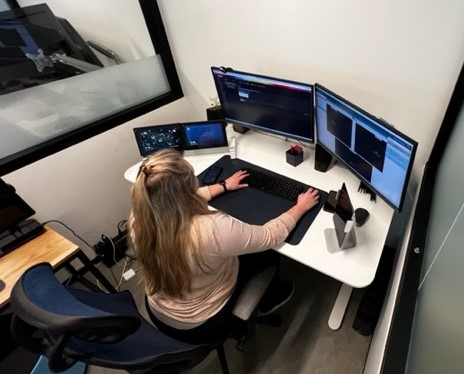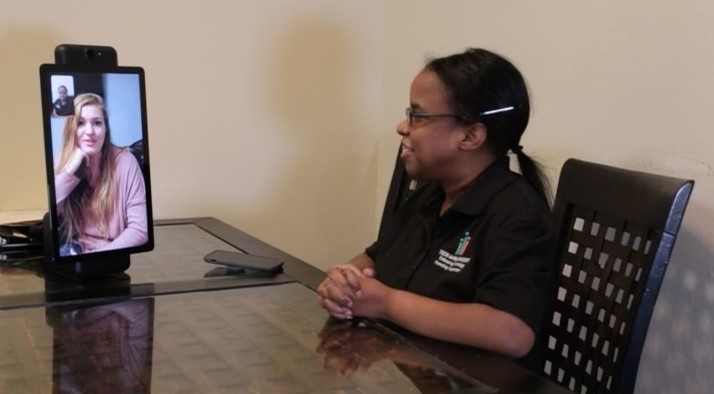Families and people with developmental disabilities who want to learn more about the benefits of remote support have plenty of options for trial runs in Franklin County.
The Franklin County Board of Developmental Disabilities and other disability-services organizations are providing both information about remote support and opportunities to try it out – including an offer of free internet service for a year – so that people can decide whether the technology is a good fit for them.
“And in the beginning, there is overlap allowed,” said Critty Buenconsejo, president and CEO of Creative Housing/Creative Renovations. “You can still have your staff person there if you’re uncomfortable. You don’t have any risk in trying it.”
Following the Ohio Department of Developmental Disabilities, FCBDD recently adopted a “Technology First” policy for the agency. That means technology solutions are to be explored and documented during the service planning process, considered as the first option, and used to the greatest extent possible to meet the needs of those receiving services. No one, however, is required to choose remote services.
“There’s so much that this can do – the possibilities are growing every day,” said Tim Voigt, an FCBDD supervisor in the Service Coordination Department. “And it doesn’t cost anything to find out.”
Remote support, which is always combined with assistive technology, allows an off-site service provider to monitor and respond to health, safety and other needs using live, two-way communication – just like Skype or FaceTime – so that people can communicate with providers as needed. Advocates say it can increase privacy, reduce demand for on-site staff and, in some cases, improve overnight monitoring of medical conditions such as seizure activity.
People served by FCBDD and who have Level 1, IO or SELF Medicaid waivers are eligible to receive reimbursement for home internet services for up to one year if they try remote support for 60 days, at a minimum of eight hours per week. “If you decide on day 61 that you no longer want it, we’ll still pay for the internet for the year,” Voigt said.
FCBDD board member Marci Straughter uses remote support as part of her service plan and says it helps her to feel safer and more confident about living on her own.
“You don’t have to go big all at once,” said Ali Rahimi of Ohio At Home, a local provider agency that offers remote support services. “Identify the need, and see where you could use the most help. Starting small is the key to success.”
Questions? Talk to your service coordinator or send a message to [email protected]



